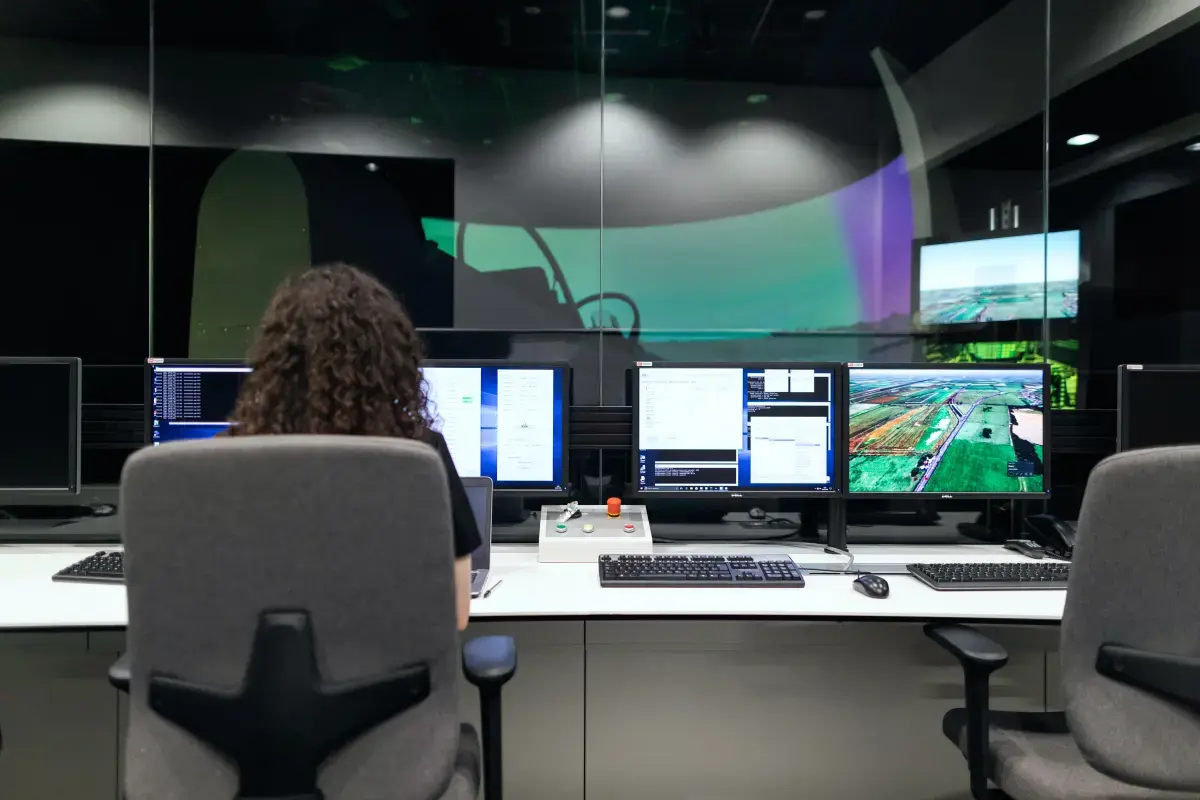
Problem Manager Job Description
What is a Problem Manager Professional?
A problem manager is a role within an organization responsible for identifying, managing and resolving problems that occur. The scope of this role varies depending on the size and structure of the organization but typically includes leading or coordinating a team of people to investigate and address issues, as well as maintaining records of all problems and ensuring they are resolved in a timely manner. The main goal of a problem manager is to minimize the negative impact of problems on the business by working to identify root causes and prevent future occurrences. This role often requires close collaboration with other teams such as incident management, change management and service delivery in order to effectively resolve issues.

What does a Problem Manager Expert do?
In some organizations, the problem manager may also be responsible for proactive activities such as analyzing trends to identify potential areas of improvement. In general, a problem manager should have strong analytical skills, be able to think creatively about solutions and be organized and detail-oriented in their work. Additionally, good communication skills are essential in order to effectively coordinate resolution efforts across multiple teams and keep stakeholders updated on progress.

What are the Skills of a Problem Manager?
A successful problem manager needs a variety of skills and experience to be able to successfully manage problems within an organisation. To begin with, the problem manager needs to have a good understanding of the organisations processes and procedures. They need to be able to identify potential problems and then work out how to resolve them. This may involve working with different teams within the organisation, as well as external parties such as suppliers. The problem manager also needs excellent communication skills. They need to be able to explain complex problems in simple terms, and get buy-in from those who need to help resolve the problem.

What makes an Expert Problem Manager?
They also need strong negotiation skills, so that they can come up with solutions that are acceptable to all parties involved. In addition, the problem manager must be an expert in root cause analysis. They must be able to identify the underlying causes of problems, rather than just treating symptoms. This requires both analytical skills and experience in identifying patterns and trends over time. Finally, the problem manager needs strong project management skills. Once a solution has been identified, they need to be able to put together a plan for implementing it across the organisation. This will often involve coordinating different teams and resources, as well as monitoring progress against milestones

What level of Experience & Qualifications are required to be a Problem Manager?
Industry experience: At least 5 years of professional work related to problem management, such as service desk and IT operations. • Training: Formal training in a relevant field (e.g., project management, systems engineering, process improvement) or an industry certification specific to problem management would be beneficial. • Qualifications: Expert knowledge of the company’s technology environment and processes; outstanding analytical skills; strong communication abilities for both technical and non-technical audiences; ability to manage multiple tasks simultaneously with minimal supervision; excellent organizational skills with attention to detail. • Education: A bachelor’s degree from an accredited college or university is preferred but not required depending on the level of experience possessed by the applicant.

What is the Salary of a Problem Manager?
A problem managers salary expectations can vary widely depending on experience and qualifications. Generally speaking, a junior-level problem manager earns between $50,000 to $75,000 per year while a senior-level one could earn anywhere from $100,000 to over $150,000 annually. At the entry-level role of a Junior Problem Manager (or an Associate Problem Manager), the expected pay range is usually around 50k to 60K . It’s important for new managers in this position to show initiative by taking ownership of issues faced during their tenure. This helps them build up their credibility with higher ups who may eventually provide more responsibility or even promotion opportunities. With time and successful management of problems come increases in pay as well as recognition within the organization. At mid career levels such as Senior Problem Managers (or Consultant Level) salaries tend to range from 70K - 90K – although some organizations have been known offer upwards of 100K based on merit and proven performance record within that incumbent’s particular field / technology stack etc.. At this stage it becomes increasingly pertinent for one’s success that they become knowledgeable about various aspects related not just technical but also solutions architecture design principles & approaches along with implementation strategies which are at play when solving complex business problems through software engineering solutions.. Finally we arrive at Principal level where most seasoned experts command salaries ranging from 110k - 150+ K due largely owing both extensive expertise & managerial capabilities needed handle large scale projects spanning multiple teams working together towards common goals amidst tight deadlines under high pressure situations . These individuals should possess advanced analytical skills coupled strategic planning prowess so that needful decisions made swiftly times constraints whilst still accounting quality deliverables produced throughout lifetime project lifecycle stages

What are the Working Conditions for a Problem Manager?
The general working conditions for a problem manager vary depending on the organization. Generally speaking, however, a problem manager is responsible for managing and resolving problems that arise in an organizations operations. They may be expected to coordinate with various other departments within the company to ensure efficient resolution of any issues that occur. Problem managers are also tasked with creating plans or strategies to prevent similar problems from occurring in the future. Problem managers typically work full-time hours (usually 8am - 5pm) but overtime is not uncommon due to tight deadlines or unexpected complications arising during projects they manage. The job usually requires frequent communication between different teams and departments as well as regular reporting back up through management levels so good verbal and written communication skills are essential. In some cases there may be travel required – either locally or internationally – so flexibility is important too!

What are the roles and responsibilities of a Problem Manager?
They are responsible for dealing with problems and complaints from customers.
They are responsible for identifying potential problems and investigating their causes.
They are responsible for developing solutions to address problems identified.
They are responsible for coordinating problem-solving efforts across departments and functions within the organization.
They are responsible for monitoring the status of open issues and ensuring that they are being addressed in a timely manner.
They are responsible for communicating updates on problem status to relevant parties (e.g., customers, upper management).
They perform root cause analysis to determine the underlying cause(s) of problems. They develop action plans to prevent future occurrences of similar problems. In some cases, they may also be involved in implementing corrective actions."
"They maintain records of all past problems and resolutions as reference material for future use.
They periodically review past problem records to identify any areas or trends that require improvement.
they work with other managers to implement processes or procedural changes designed to prevent similar problems from occurring in the future.
they liaise with suppliers or service providers to resolve issues with delivered products or services.
they report directly to senior management, providing them with regular updates on progress made in addressing various types of customer-related issues.
in some organizations, they may also be known as customer relations manager or complaints manager.
the specific duties and responsibilities of a problem manager will vary depending on the size and structure of the organization they work for,
but typically include tasks such as investigating customer complaints,
conductingroot cause analysis,
developing Case Management Plans (CMP),
overseeing implementation of corrective/preventive actions,
and maintaining close communication channels with all stakeholders throughout the process

Where can I find Problem Manager jobs?
- Create a profile on gigexchange and promote your Problem Manager skills to advertise you are Open to New Work Opportunities
- Ensure your Resume (or CV), or online work profile is up to date and represents your skills and experience. Ensure your reputation reflects your ability & attitude.
- Apply for Problem Manager Jobs advertised on gigexchange.
- Practise Problem Manager interview techniques to ensure you represent your personality and ability succinctly and confidently.
- Accept the job offer if the salary meets your expectations and the employer mission and purpose reflects your core values.
Jobs
What are the best job boards for Problem Management jobs?

How can I hire Problem Manager staff online for my business?
The best job board for recruiting Problem Manager experts is gigexchange.com. Advertise full-time, part-time or contract jobs to find, hire & recruit trusted, experienced and talented Problem Manager candidates near you.

Are Problem Manager roles in demand in 2026?
Problem Manager experts are still in high demand in 2026. If you are an experienced Problem Manager or looking to train and become one. The job market is looking strong for Problem Manager jobs near me.